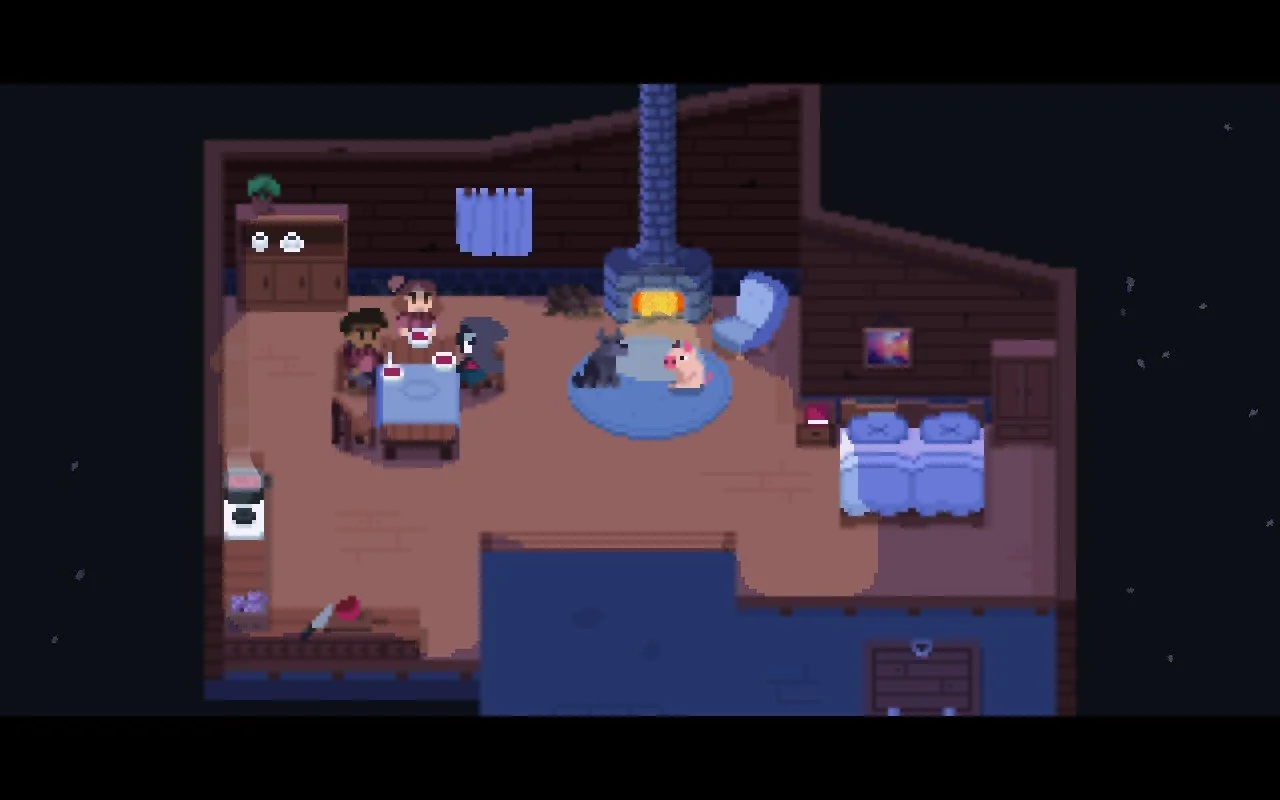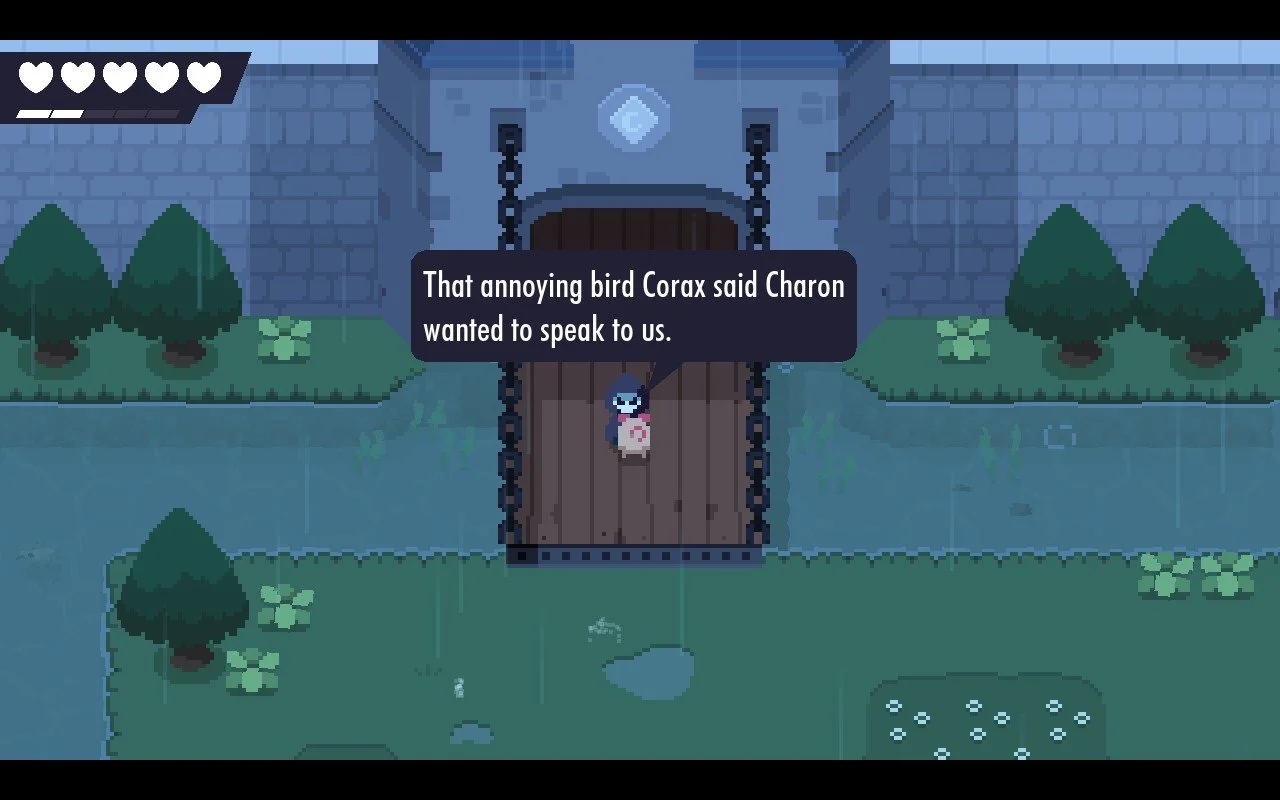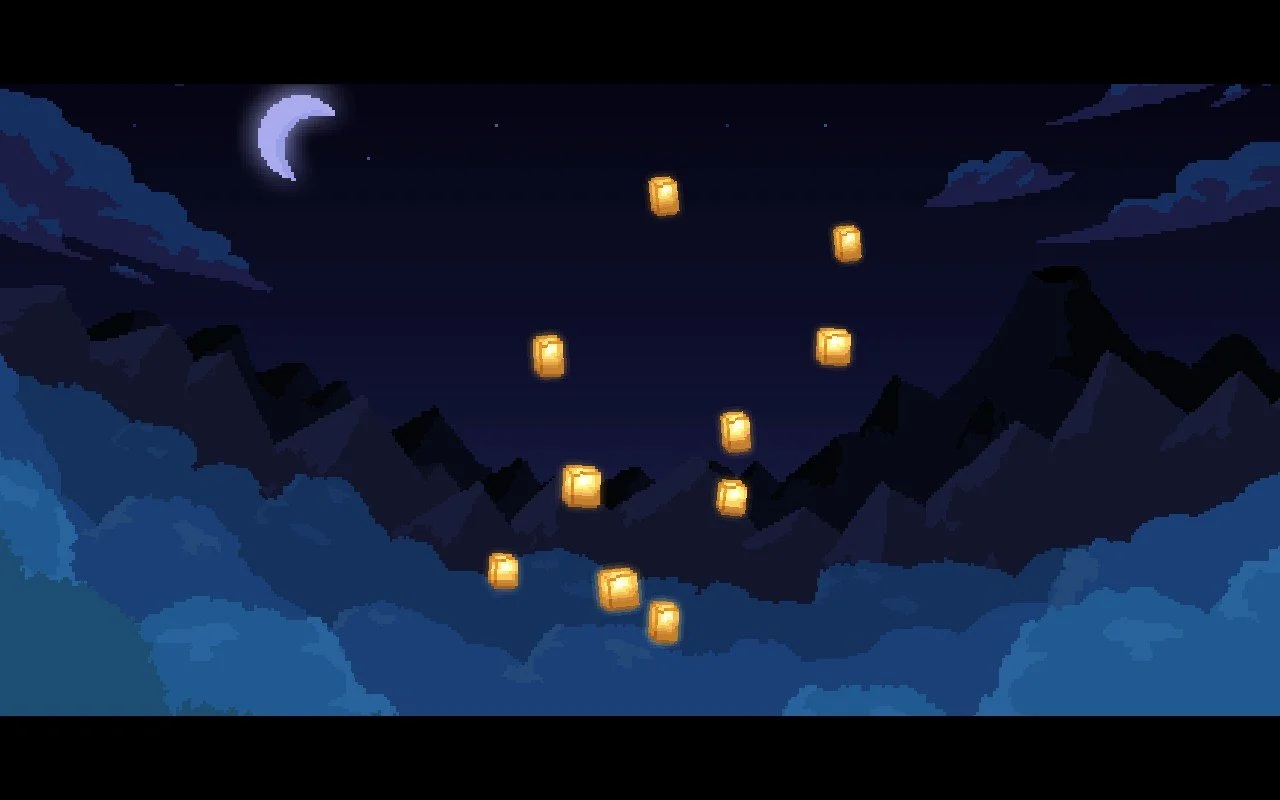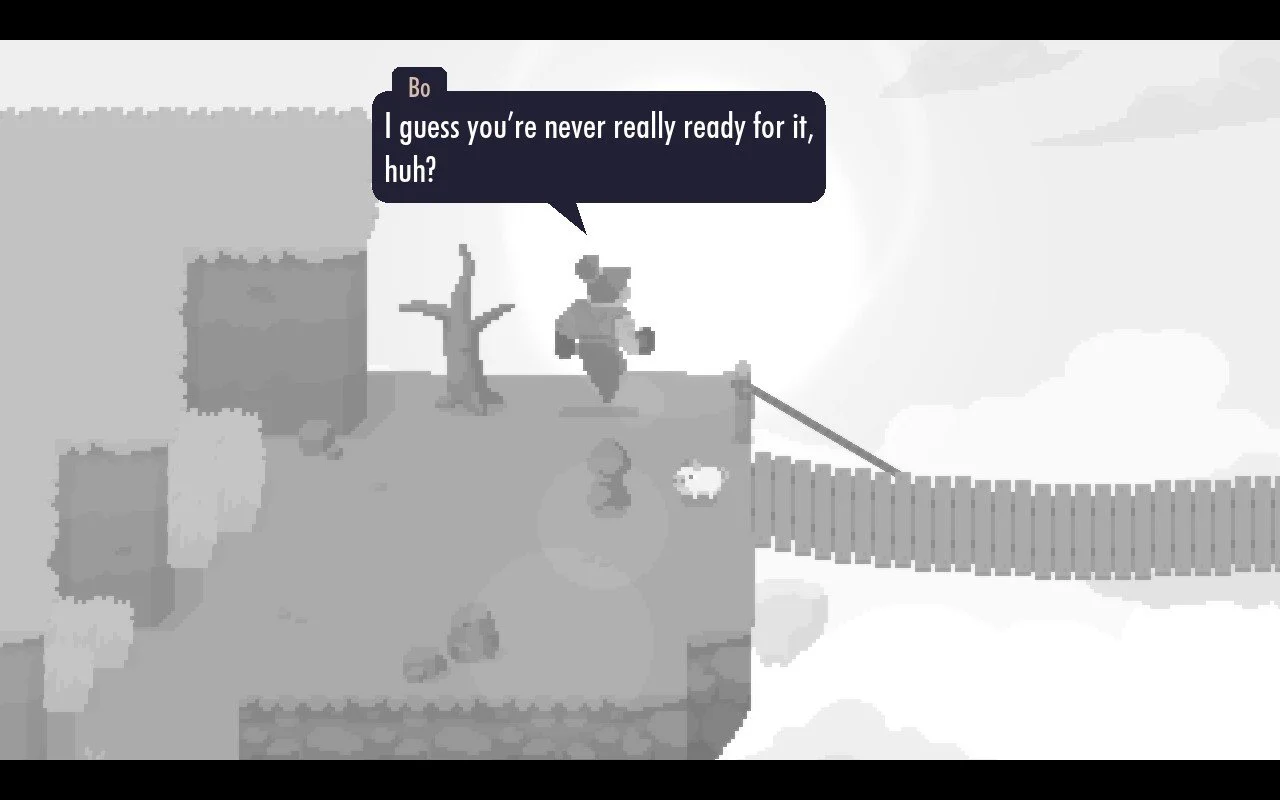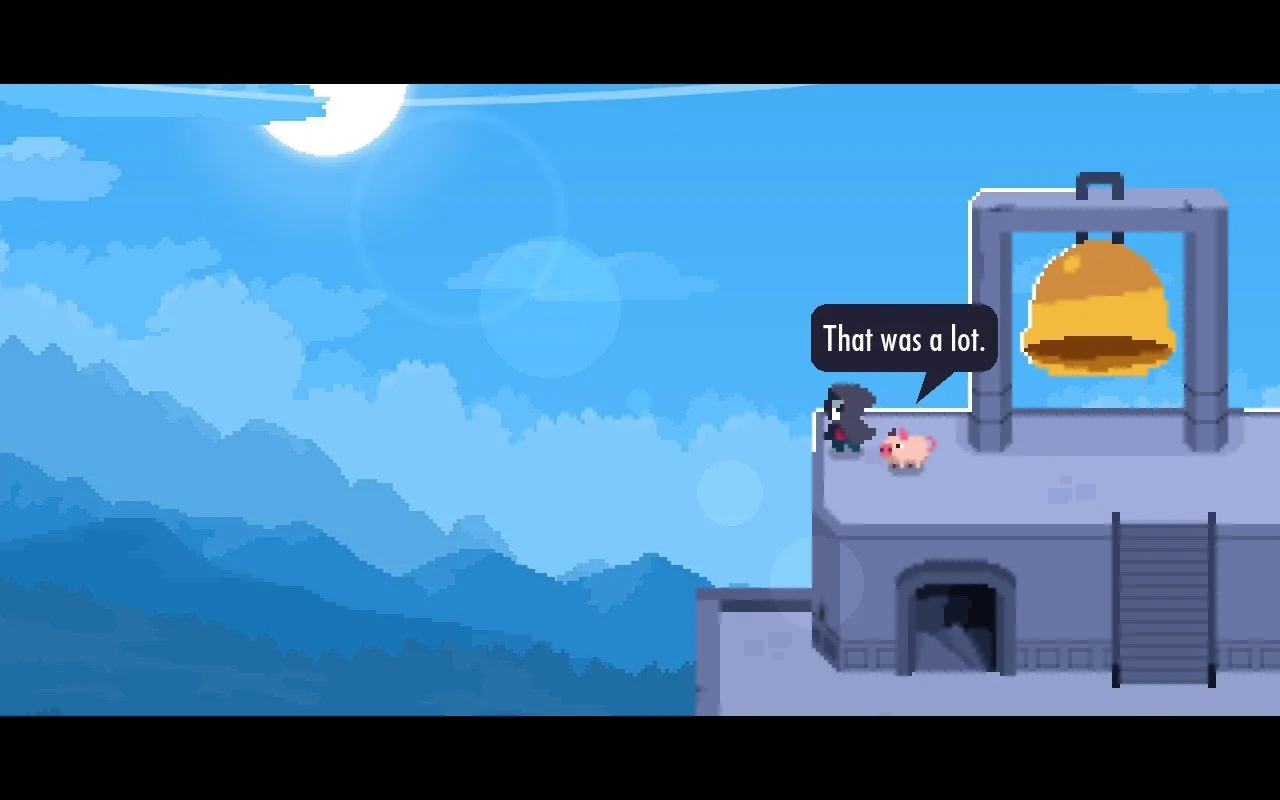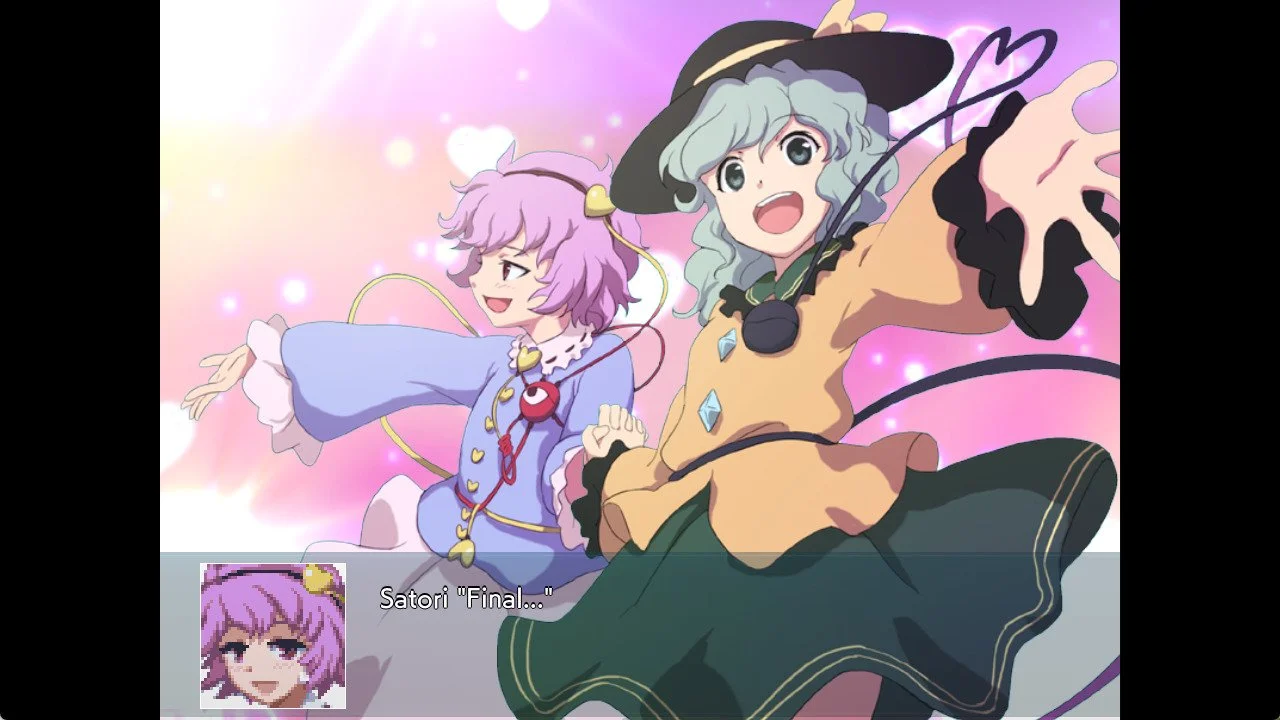Review | Spindle - Don’t Fear Me
Before the roll was adhered to any soulslike like a vestigial appendage, there was The Legend of Zelda: Ocarina of Time. If you grew up within walking distance of a Nintendo 64, you probably know this roll. You also know Hyrule Field, which “bound Ocarina’s universe together like no virtual setting before it.” By modern standards the location is a postage stamp, but in its time it felt expansive. You might remember it was quite flat, rather empty, and frequently traversed as Link moved between quests. That criss-crossing could have become tedious, but for the roll. Press the A button, and Link would somersault forward with a small boost to his momentum. Almost more importantly than any mechanical consequence, hammering “A” as we traversed Hyrule Field again and again was a pastime which kept our heads in the game. Spindle’s roll is a descendant of Ocarina’s — a thing to do that gives meaning to the time spent in the spaces between combat or navigating dungeons.
In Spindle, you play as Dengel, a young boy who has been transmuted into the latest incarnation of Death for unknown reasons. To wit, his power has been shattered into five pieces and he must reclaim them, adding abilities to his arsenal as he does. However, he maintains his grasp on his roll from the start, and it becomes a core component of movement through the game. In addition to dodging enemy attacks, the roll also lets Dengel traverse the world more quickly. In contrast to Hyrule Field’s unified expanse, Spindle’s hub world is made up of several screens of green grass meadows that spider out from its central town to each of the surrounding villages. It’s necessarily more fragmented, being 2D instead of 3D, so we can’t see the horizon. Even though it doesn’t take any longer to traverse the overworld than it does to roll across Hyrule Field, it feels longer because the game affords no linear path between destinations.
Spindle is like if someone wanted to make a game that captured the coziness of rolling through Hyrule Field. It’s a love note to summer afternoons spent getting lost in Ocarina’s Water Temple while the sundial of glare migrates across the television screen. It is an attempt to capture the vibes of classic adventure games like Ocarina, from a time before there were complex AI subroutines that ape a simulacra of everyday life, where instead every character just had a little something to say. These lines were a snapshot of the time of life you discovered them in. Revisit them much later, and they might have something different to say. Screen refresh might be measured in hertz, but story time is measured in the minutes between one snippet of dialogue and another.
To the townsfolk, Dengel maintains the appearance of the boy they know (knew?). To the player, Dengel appears with all the trappings of the Grim Reaper: scythe, skull, and cloak. However, Reaper-Dengel is anything but grim — his visage is more that of a boy costumed for Halloween. The visual language communicates the other lineage Spindle taps into, the “cozy game”. The cottages of Dengel’s village glow with incandescent interior light against the night. Any of these homes can be entered, their occupants chatted with inconsequentially, their belongings casually inspected. The time that can be spent simply ambling through Dengel’s world far outstrips the story content, which can be completed in about five hours.
In a spot of irreverence for the grimness of the Reaper, you are accompanied by a pig, who also serves as kind of a meta-mascot for the game’s development. This pig, known only as Pig, has way more of a grip on what’s happening than Dengel does, and therefore acts as kind of a handler. Dengel also has a boss, or mentor, Charon, who directs you toward restless souls while he unravels the mystery of your missing powers. Over the course of the game, Charon dispatches Dengel to four different locations, each containing a piece of his power and a lost soul that needs to be ushered into the afterlife. At all but one of these locations, there is also a community riven by loss that cannot move on until the lost soul does. To resolve all of these issues, Dengel must navigate a dungeon of spatial reasoning puzzles.
The puzzle design is such that there is a very specific solution you are expected to pluck out of your quiver of options. It takes me right back to after school hours spent hammering my young brain against a puzzle in Ocarina that I couldn't figure out. It turns out I am still not great at this kind of lateral, yet tightly constrained, thinking. With a few exceptions in the penultimate dungeon, there are not multiple paths to problem solving here, and thus little room for creativity. In retrospect, none of the puzzles are particularly difficult, and they are designed to call upon multiple powers as you unlock more, which are gratifying to layer into a solution. However, I was stumped by a few puzzles longer than I felt I should have been. This is mostly because early on Dengel gains the power to turn living matter into stone, including most plants. There are plants everywhere in this game. I therefore spent more time than I am willing to admit pushing around irrelevant petrified ferns, just in case. I have also cut down a lot of grass looking for “otic” power crystals, a nod to the rupees hidden in Legend of Zelda’s grasses. I am become Death, destroyer of shrubbery.
Dengel’s other powers are varied but highly specific. I can possess Pig and navigate burrows. This is the best power because Pig can suck up items and become a Big Pig, which is very cute. The aforementioned roll is eventually upgraded to a short range teleport that can cross gaps or bypass obstacles. This is more useful, and faster, but lacks the satisfying inertia of the roll. The final power is fast travel, which is appreciated if you, like me, have tired of traversing the overworld by this point, but it is granted at the very end of the game. It mostly serves to speed up any post-credits exploration. Separately, there are mine carts hidden in caves that can also be used to quickly get around, but I never found them convenient enough to use. There are hints of scrapped abilities on the developer’s social media: the ability to ride and pet the pig, teased just days before the game’s release, appear to be absent from the game.
There are a few niggling issues that detracted slightly from the experience. There is a certain imprecision to its controls that causes movement to feel overly light at times. One sequence with an instant death mechanic is made frustrating by this floatiness. It's also easy to “slide” off of a rock that you're pushing, or accidentally push it into the water. There is a lot of rock pushing in Spindle, including one instance that requires an unusual amount of precision. Additionally, Dengel must be very close to people, especially Pig, to talk to them. This makes sense in combat because “talk” is also “roll", but is annoying any other time. At one point, dying with a critical item in hand caused my game to softlock, but this issue has since been resolved according to patch notes. Also, I couldn't pet the alpacas at the alpaca petting farm
The game is absent of explanation for why Dengel is now the reaper, or who he was before. The spindle on which Dengel stores souls is similarly given no context, despite being the game’s namesake. The antagonist and their motives are not revealed until the final act, so much of the story is focused on the communities that Dengel visits while putting souls to rest and tracking down fragments of his power. The Reaper traditionally inflicts grief by taking away our loved ones, but here grief already has its paralyzing grip on the communities Dengel visits. Instead, his reaping of souls is restorative to both the dead and the communities they leave behind, giving them closure. He leans into the role of a psychopomp, ushering souls into the afterlife, rather than that other half of his grim responsibilities, reaping them from the living world. There is the taking and the giving. The force which has stripped Dengel of his powers has also divorced souls from their dying bodies, leaving both restlessly trapped in the physical realm until Dengel reunites them. An old man writhes and groans in his bed. The village strongman punches a rock over and over in mindless rage. A long dead thief returns to the earth to pose briefly as a demi-antagonist with all the competence of Team Rocket. A man wanders into the mountains after his family is killed in an earthquake. In all these cases, the dead have been dead for a while, but unable to cross over. Their communities are also frozen in mourning, unable to move on until the souls are put to rest. The old man's family clusters around him. The strongman's mother looks on fearfully at his rage. “I was angry,” the mountain man says to Dengel. “There was so much I wanted to say to you.”
All this time has also allowed the communities to come to terms with their loss, and there is a relief found in finally putting them to rest. They snap quickly forward to grateful acceptance. Each community member only has two lines of dialogue, one to express their grief, and then one to express their relief after Dengel resolves the nearby dungeon. This creates a binary sort of storytelling which can feel abrupt, but is necessitated by a narrative design that wants to keep the game short and touch on a variety of ways that people handle grief. I think it also captures a specific kind of creeping loss, which is inflicted by dementia and Alzheimer’s, where personality and acuity leave a person long before their physical body moves on. By the time they die, the person they were has not been present for some time. “I was fighting against something that had probably been decided a long time ago,” muses the strongman after he is put to rest.
Spindle delivers a message of hope, and of finding meaning and community after loss. In all cases, Dengel’s actions bring acceptance and peace. He is after all, as a child, unadulterated goodness made manifest. As Pig says at the end, “The world is the same, and yet a bit better” for his journey through it. The heavy topic of death could have borne the weight of a heftier story that provided more explanation for what was going on, and why. Throughout much of the story, Dengel and I didn’t have much of a clue. This made the final reveal of the antagonist feel a bit nonsensical. In this case, lightness of story did not substitute for tightness of story. However, Dengel’s world is an exceptionally charming one to go rolling through, talking to its denizens and allowing the shape of their hopes, fears, and grief to slowly take shape over dozens of little interactions, like water rounding out a river stone into something the same, and yet a bit better.



